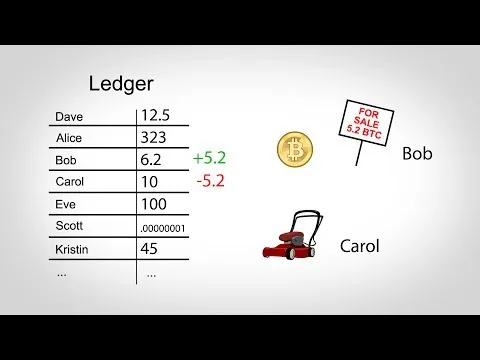Bitcoin, Ethereum, Litecoin, Ripple, and other cryptocurrencies: you've heard of them, but what are they? How many are there and how it all works?
I'm sure you heard about Bitcoin, Ethereum or some other cryptocurrencies.. But what are cryptocurrencies? What is the difference between cryptocurrency and "normal" currency? This is a quick guide with purpose of referring readers to the world of cryptocurrencies without goind into too much details. We recommend that you read our whole 5 part tutorial in order and do not skip parts.

Image source: Bitcointalk.org
Cryptocurrencies are currencies based on cryptography (information encryption maths) that have started to emerge since 2009, shortly after a major financial crisis. The first cryptocurrency ever created was called Bitcoin (When some still claim that Ripple was first), and was made by an unknown developer under the pseudonym Satoshi Nakamoto.
IS THAT MONEY THAT ONLY EXISTS ON THE INTERNET, AND IT IS NOT IN A PHYSICAL FORM?
This is often an explanation, but it's quite wrong. Cryptocurrencies does not exist on the Internet, they are primarily software, that is, records within a program that is installed on multiple computers that are interconnected. This is not significantly different from standard money, eg the dollar or euro.
Let's explain this: most people and all companies have an open bank account. There is some amount in the account, let's say in dollars. Some also have the money in physical form, banknotes and coins. By summing up the sums on all bank accounts from all people and companies counting all the amount people have with them in the form of banknotes and coins, we would get how many dollars we have in circulation. This figure is about 5000 billion dollars (the amount is made up for the example). But how much money is in physical form? For example 250 billion or 5%.
Thus, 95% of the dollar is virtual, this money exists solely as a record in databases and programs of computers of banks and other institutions that are interrelated. Thus, business without physical money is actually not a new change in the current system.
Cryptocurrencies do not have their physical form, they are used the same as when you pay with a card or transfer money to another account. All this is just a change in records on the accounts, without the physical exchange of money.
WHAT IS DIFFERENCE BETWEEN CRYPTOCURRENCIES AND "COMMON" MONEY?
In the comparisson itself - there is no significant difference. When you pay something in the store with a card, you do not see that money, you just see a change in your account balance. Similar is with cryptocurrencies - a change in the number in the program is made, that shows the balance of the account.
There is a big difference in (de)centralization. Your dollars are currently stored in the form of banknotes / coins at your own risk and in the form of a bank account number, that is to say, in the database in the bank telling you that as a client of that bank you have x amount of USD in your account. These bases are strictly protected, but if a security breach occurs? Does the change of base records means a loss of money? Actually, yes. Since all this information is stored in the central point of the bank, on one or more computers, this data is subject to loss. But this is a unlikely situation. Much bigger problem is the enforcement. The Bank is subject to the laws of the country in which it operates and has the right to freeze the funds in the client's account. That's why they say that the safest money is the one you have with you "in your pocket".
The cryptocurrencies in comparisson against this system do not have one center where data of the amounts in the account is stored. These data is distributed, meaning they are multiplied to a large number of copies, almost on every computer in the network of a specific cryptocurrency. Most computers on which cryptocurrency software have been installed have records of all transactions ever made. In order to change the value of another account, it is necessary to change the same data on most computers, ie 51% of computers. That is why we say that the cryptocurrencies system is decentralized. Thus, since there is no central party, the possibilities of seized money are blocked. No one can "freeze" your account and prevent you from using your money in the form of a cryptocurrency.
Cryptocurrency is a software whose data is encrypted and copied to all computers in the network, and it functions as standard bank accounts - every transaction is just a change of amount between 2 accounts in the database.
I suggest that you check out the video below that explains the cryptocurrency on the Bitcoin example in 5 minutes!

